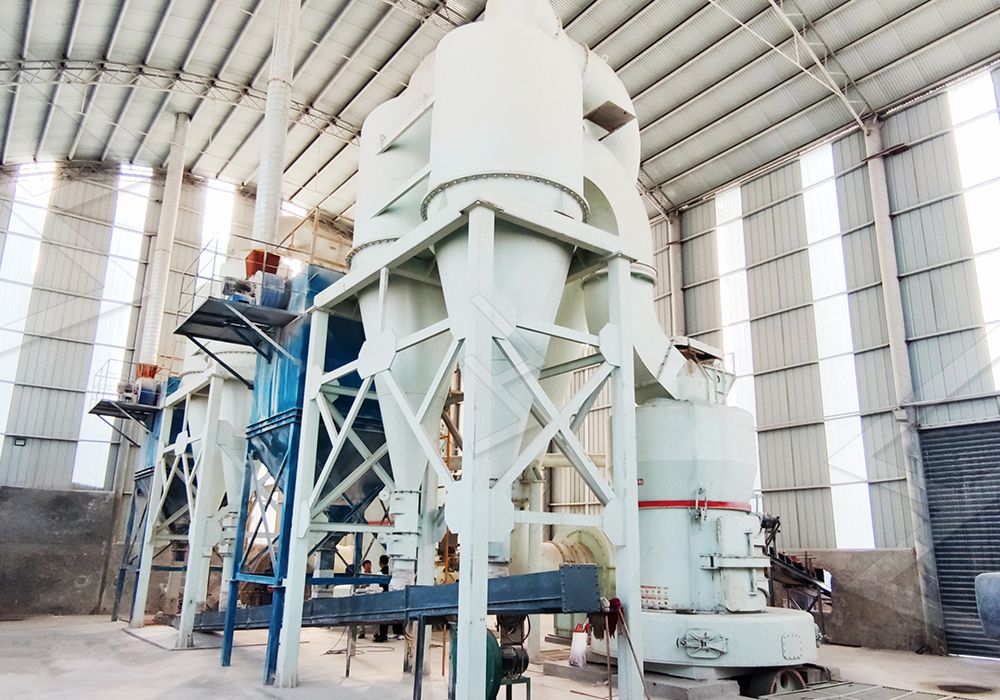Industry News
Dolomite Grinding Mill for Glass and Ceramic Industries in Japan – Free Quote and Factory Direct
2025-11-20 08:37:29
We are Liming Heavy Industry, a manufacturer of various types of industrial crushers, such as Raymond Mill, Trapezoidal Mill, Vertical Mill, Ultrafine Mill, Ball Mill, etc.
Our mills can process the following minerals:
limestone, quicklime, kaolin, talc, barite, bentonite, calcium carbonate, dolomite, coal, gypsum, clay, carbon black, slag, cement raw materials, cement clinker, etc.
If you need a mill to process stone or minerals into powder, please feel free to contact me (WhatsApp: +86 153 3380 7511). Thank you.
Dolomite plays a crucial role in Japan's glass and ceramic industries, where high-purity mineral inputs are essential for achieving consistent product quality, thermal stability, and structural integrity. As demand for premium glassware, architectural glass, advanced ceramics, and electronic ceramic components continues to rise, the need for finely processed dolomite has grown steadily. A reliable dolomite grinding mill is therefore an important investment for factories aiming to enhance product performance and ensure stable supply.
_1761296107304.jpg)
Importance of Dolomite in Glass and Ceramics
In the glass industry, dolomite provides magnesium oxide and calcium oxide, both of which improve melt viscosity, enhance chemical durability, and increase the overall stability of the glass. This makes dolomite indispensable for producing flat glass, container glass, heat-resistant glass, and certain optical materials.
In ceramic manufacturing, dolomite contributes to better firing behavior, improved whiteness, and increased mechanical strength. It is commonly used in tiles, tableware, sanitary ceramics, and high-precision industrial ceramics. To meet these application standards, dolomite must be processed into uniform fine powder with controlled fineness and high purity.

Key Requirements for Dolomite Grinding in Japan
Japanese manufacturers have strict expectations for powder uniformity, moisture control, and particle shape. A suitable dolomite mill must offer:
Stable output with narrow particle size distribution
Ability to process dolomite to 200–600 mesh depending on application
Low energy consumption and continuous operation
Consistent product whiteness and purity
Minimal dust emissions to comply with Japan's environmental regulations
These criteria drive the selection of modern grinding systems capable of delivering high precision and reliability.
_1761355927036.jpg)
Popular Dolomite Grinding Mills for Glass and Ceramics
Raymond mills are a widely used solution for dolomite processing, offering reliable performance for producing 80–325 mesh powder. Their simple structure, mature technology, and stable output make them suitable for small and medium-scale manufacturers. Raymond mills are favored for their ease of maintenance, lower investment cost, and consistent powder quality, making them ideal for factories producing standard-grade dolomite powder for tiles, glass containers, or general-purpose ceramics.
Vertical mills are becoming the preferred equipment in Japan's high-end glass and ceramic sectors. They integrate grinding, drying, and classification in one compact system, offering stable fine powder up to 600 mesh with excellent uniformity. Their higher efficiency and lower power consumption significantly reduce operational costs in long-term production. Vertical mills also operate under sealed negative pressure, helping meet strict dust control and environmental requirements.
For manufacturers aiming to produce advanced ceramic materials, ultra-clear glass raw materials, or premium dolomite powder with controlled particle size distribution, vertical mills provide a dependable and high-performance choice.
_1761361296294.jpg)
Factory Direct Supply and Free Quote
When sourcing grinding mills, Japanese companies often prioritize long-term stability, after-sales service, and cost efficiency. Factory direct supply eliminates unnecessary middlemen, ensuring faster delivery, reasonable pricing, and reliable technical support. This is especially important for grinding plants that operate continuously and cannot afford extended downtime.
Manufacturers offering professional guidance, project design, installation support, and spare parts availability can help reduce operational risks and enhance overall production efficiency.
Recommended Equipment for Dolomite Grinding
For dolomite processing in Japan's glass and ceramic industries, Liming Heavy Industry provides mills known for their durability and performance. The Raymond mill offers stable production for standard fineness requirements, while the vertical grinding mill delivers higher capacity, better energy efficiency, and finer powder quality for advanced industrial applications. Both machines are designed to support long-term production with minimal downtime, making them reliable choices for factories seeking factory-direct supply and competitive quotations.
_1761361296291.jpg)
FAQ
1. What fineness is required for dolomite used in glass and ceramic production?
Most applications require 200–600 mesh, depending on the final product specifications.
2. Which mill is better for high-purity dolomite powder?
Vertical mills are generally preferred due to their excellent uniformity, low contamination risk, and energy-efficient performance.
3. Can Raymond mills meet the needs of ceramic tile factories?
Yes, Raymond mills provide stable 80–325 mesh powder suitable for most tile and general ceramic applications.
4. Do vertical mills help reduce energy consumption?
Vertical mills typically consume less power per ton because of their efficient grinding and classification system.
5. Is factory direct supply more cost-effective?
Yes, buying directly from the manufacturer reduces intermediary costs, ensures faster service, and improves equipment reliability.
6. How does dust control affect grinding mill selection in Japan?
Japan has strict environmental regulations, making sealed, negative-pressure systems like vertical mills highly recommended.
7. Can the mill operate continuously for 24 hours?
Both Raymond and vertical mills from Liming Heavy Industry are designed for long-term, continuous industrial operation.







